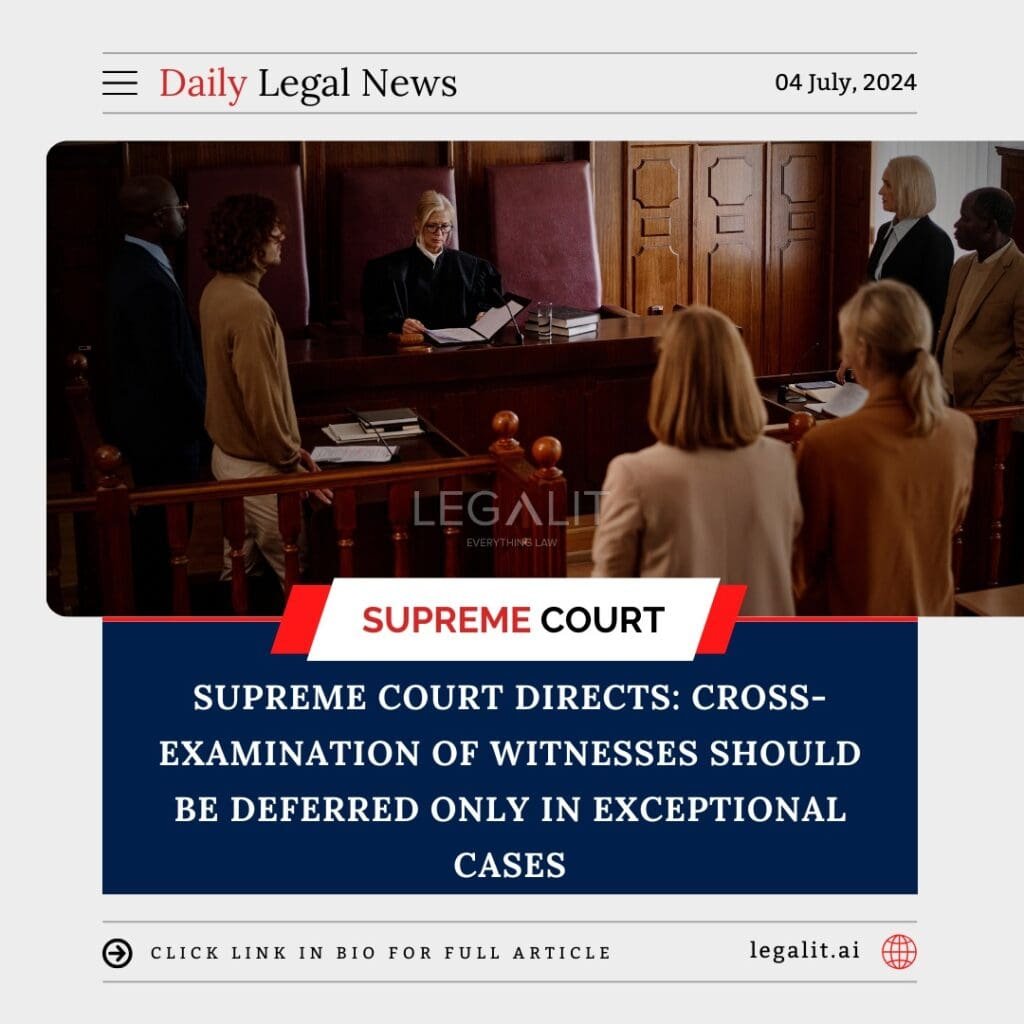
The Supreme Court has issued important guidelines regarding the deferment of cross-examination of witnesses in criminal trials. This decision underscores the importance of adhering to established procedures to ensure the integrity and efficiency of the judicial process.
Key Points of the Ruling:
- Discretion in Deferment:
- The court highlighted that while Section 231(2) of the CrPC provides judges with the discretion to defer the cross-examination of a witness, this should be exercised only in exceptional circumstances. The intent behind this provision is to avoid unnecessary delays and to ensure the swift progression of trials oai_citation:1,SC Issues Directions on Examination of Witnesses In Criminal Trial Article – Legal Articles in India oai_citation:2,Principles governing power of Courts to direct Retrial and Joint Trial, as laid down by Supreme Court | SCC Times.
- Legislative Intent:
- The legislative history indicates that the provision for deferment was introduced to streamline procedures in warrant cases and to minimize inconvenience to witnesses. The Supreme Court emphasized that adjournments should not be granted lightly and must be justified by compelling reasons oai_citation:3,SC Issues Directions on Examination of Witnesses In Criminal Trial Article – Legal Articles in India oai_citation:4,Law Web: Guidelines of Supreme court for grant of adjournment in criminal case.
- Framework for Discretion:
- The court outlined that judicial discretion must be exercised with due care and caution. Judges must be aware of the context and the foreseeable consequences of deferring cross-examination. The decision to defer should not be based merely on convenience but should be supported by substantial reasons that are aligned with the statutory framework and legislative intent oai_citation:5,SC Issues Directions on Examination of Witnesses In Criminal Trial Article – Legal Articles in India oai_citation:6,Principles governing power of Courts to direct Retrial and Joint Trial, as laid down by Supreme Court | SCC Times.
- Exceptional Circumstances:
- The Supreme Court noted that deferment is permissible in cases where there are exceptional circumstances or where a very strong case is made out. This ensures that the deferment does not undermine the rights of the parties or the fairness of the trial process oai_citation:7,SC Issues Directions on Examination of Witnesses In Criminal Trial Article – Legal Articles in India.
- Ensuring Fair Trials:
- The court’s directive aims to balance the need for fair trials with the necessity of avoiding undue delays. It stressed that the trial courts should strive to complete the examination-in-chief and cross-examination on the same day, wherever possible, to maintain the momentum of the trial and uph…